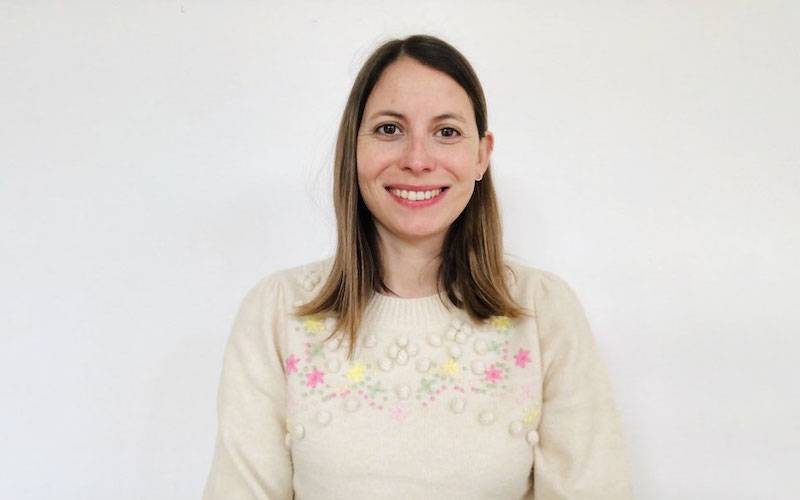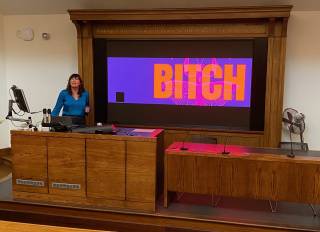Scientific Programme Manager, and working mother, Ana Saraiva Ayash has a strong interest in helping other working parents – through her EDI work.

“After finishing my PhD in Cognitive Neuroscience at UCL, I decided to transition out of academia.
I was lucky enough to work as a Science Portfolio Adviser in the Neuroscience team at the Wellcome Trust, where I gained experience of the UK funding landscape and was exposed to transformational research projects. Importantly, I gained a lot of insight into issues around equality, diversity and inclusion (EDI) and how to improve the research culture.
When I joined the Gatsby Unit at UCL in 2019, I felt compelled to put my experience to good use, and volunteered to be the co-Chair of our Athena SWAN self-assessment team (SAT).
I’ve always been interested in finding ways to improve other people’s experiences, from back when I was a student rep in my undergraduate studies. As a working mother who appreciates flexibility, I have a particular interest in helping other working parents. Creating a flexible and inclusive work environment where individuals don’t feel penalised for having children is key to fostering diversity within academic research.
Working on Athena Swan has been particularly eye-opening. The role has allowed me to be actively involved in creating and implementing policies that directly impact women, parents and early career researchers.
For example, we’re currently piloting a scheme to help support PhD students and postdoctoral fellows with their childcare costs by providing a monthly stipend/salary supplement. We’ve also designed a programme to support faculty members on parental leave that allows for someone else, such as a senior postdoctoral fellow, to temporarily take over duties as principal investigator (PI) until the faculty member on leave returns to work. This not only helps the PI feel less pressure to return to work immediately, but also empowers early career researchers with leadership skills they will ultimately need down the line. Our policies are now expanding to look at other diversity issues within academia, too, such as racial and ethnic diversity, and I am learning a lot from that.
Most importantly, the work we’ve done on Athena Swan has generated and resulted in many actions and policies that are already making a difference in the department.
Our joint SWC-Gatsby research culture subgroups have perhaps been the most impactful, as these are groups where students and postdocs put forward and implement ideas to help build a community-led, bottom-up approach.
Our community group has pushed forward initiatives to turn our building into a nicer place to work. For instance, adding plants to corridors and shared spaces, and giving people the chance to choose their own vegetable or fruit to grow outside in our courtyard.
Our research group has created more opportunities for team science and collaborative discussion, too. All of these initiatives came from early career researchers and others in the building, and it’s fantastic that senior management are listening to these ideas and making them happen.
The Gatsby Unit’s work to increase the diversity and visibility of role models has also paid dividends. The percentage of female speakers taking part in our external speaker series increased from 14% in 2017 to 36% in 2021. Likewise, in 2018, only 10% of postdoctoral fellows at the Gatsby were women. This increased to 60% in 2020, which we’re incredibly proud of.
Ultimately, we want to build a positive research environment where individuals are encouraged to flourish and thrive, and more importantly, where they are happy. The only way to achieve this is by considering EDI issues and putting EDI policies front and centre of our work.
Being involved in EDI for me has been a very gratifying experience. I’ve been able to interact with many colleagues and learn from them. It’s helped me develop a lot, and made me acutely aware of individual differences and needs, and I am so grateful for that.
Links
Athena Swan in UCL Biosciences
Gatsby Computational Neuroscience Unit
Follow Ana on Twitter @anacsaraiva
 Close
Close


